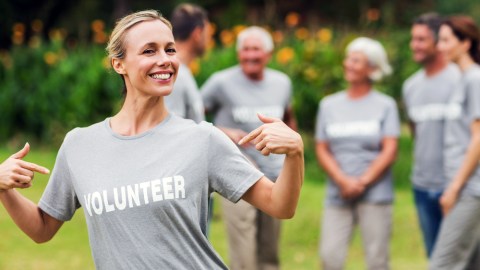Why Overly Altruistic People Make Us Uncomfortable

At The New Yorker festival, Larissa MacFarquhar plans to tackle the prickly issue of doing good. Not that doing good is bad, but rather that we get uncomfortable around those who are more altruistic than ourselves.
Our culture is rife with people annoyed by do-gooders: Rush Limbaugh mocks liberals for being too empathetic; some Catholics are uncomfortable with their progressive Pope; and recent scholarship has even criticized Mahatma Gandhi.
MacFarquhar writes: “Ambivalence toward do‑gooders also arises out of a deep uncertainty about how we ought to live. For instance: A do-gooder holds himself to moral commitments so stringent that they conflict with his caring for his family. To most people, it’s obvious that they owe far more to family than to strangers, but the do‑gooder doesn’t believe his family deserves better than anyone else’s.”
Why we’re empathetic to strangers, animals, or causes is not entirely certain, but the consensus is that it more or less balances out our selfishness.
The term “little goody two-shoes” dates back centuries in English folklore. The fictional Margery Meanwell is an orphan who is given a shoe by a rich gentlemen and then goes on to pay it forward. The story was meant to instruct children on how to conduct themselves in society, but now being bestowed the same title is not such a compliment.
So why do we have beef with people who are compassionate? Perhaps because we feel threatened by people who are more visibly vulnerable than us. Altruism is tricky. Why we’re empathetic to strangers, animals, or causes is not entirely certain, but the consensus is that it more or less balances out our selfishness.
To discuss the topic of kindness and culture, MacFarquhar will sit down with Aaron Pitkin, a poultry rights activist. Apparently, morality is even for the birds.
Thupten Jinpa explains how recent advances in neuroscience have allowed for a better understanding of the science of compassion.
—
Daphne Muller is a New York City-based writer who has written for Salon, Ms. Magazine, The Huffington Post, and reviewed books for ELLE and Publishers Weekly. Most recently, she completed a novel and screenplay. You can follow her on Instagram @daphonay and on Twitter @DaphneEMuller.
Image courtesy of Shutterstock





